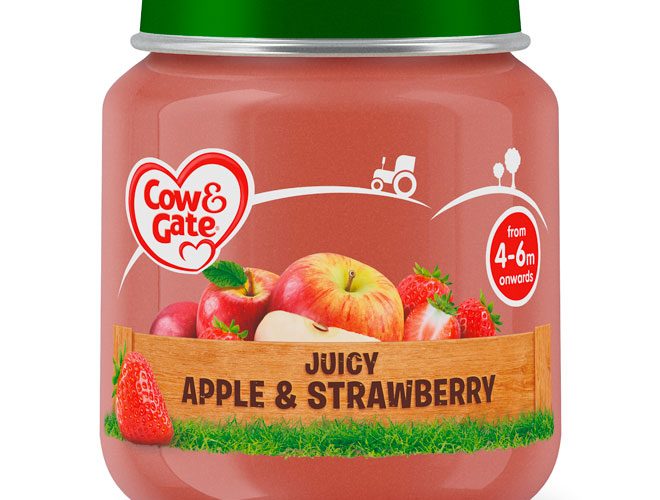The importance of infant nutrition
- Like
- Digg
- Del
- Tumblr
- VKontakte
- Buffer
- Love This
- Odnoklassniki
- Meneame
- Blogger
- Amazon
- Yahoo Mail
- Gmail
- AOL
- Newsvine
- HackerNews
- Evernote
- MySpace
- Mail.ru
- Viadeo
- Line
- Comments
- Yummly
- SMS
- Viber
- Telegram
- Subscribe
- Skype
- Facebook Messenger
- Kakao
- LiveJournal
- Yammer
- Edgar
- Fintel
- Mix
- Instapaper
- Copy Link
Posted: 13 December 2016 | Dr Giuseppe Battaini | No comments yet
Science is the key to understanding this critical development period and delivering the products and services needed to provide long-term positive health outcomes…


With national obesity figures on the rise, infant nutrition – specifically the first 1,000 days of life – are ever more important. Science is the key to understanding this critical development period and delivering the products and services needed to provide long-term positive health outcomes.


Obesity is arguably one of the greatest threats to life in the 21st century. High calorie meals and ‘fast foods’ are more readily available than ever before, with many ‘healthy’ meals containing high levels of salt, sugar and fat. At the same time consumers’ eating habits are changing, with an increasing trend for quick, on-the-go meals rather than the traditional family meal set-up.
Nutrition and diet are now more than mere buzzwords; they are key concerns for the health of the nation. According to the World Health Organisation, diet is one of the catalysts in five out of the seven leading causes of death in the UK: obesity; high blood pressure; high blood sugar; high cholesterol and malnutrition1.
The effect of poor diet is perhaps most alarming in children, with 21.9% of UK children starting school overweight or obese2. Tackling this problem is critical to ensuring the health of future populations. The recently launched Childhood Obesity Strategy is a mark of government recognition of this mission. The multifactorial intervention presented in this framework places significant emphasis on sugar reduction and the socio-environmental interfaces that influence school-aged children.
Though a step in the right direction, there is a notable lack of policies to address what has been scientifically proven to be the most critical phase of dietary development: the first 1,000 days of life. This period, from conception to toddlerhood, is thought to be the key window for setting up healthy nutrition habits. The figures speak for themselves: between 50-60% of food preferences a child has when aged two to three are the same as when they are 17-22 years old3. Shaping food behaviours during this stage could influence diet in later life, as well as the associated health outcomes.


The first 1,000 days health and prevention model is founded in science. Pioneered by Dr Rene J. Dubos in the 1900s, the theory evolved from ground-breaking studies assessing early life environmental exposures. These included diet, social interactions, housing conditions and commensal microbiota (the non-harmful microbes in our intestines). Links were made with adult diseases, which paved mechanistic roads to what became Professor Baker’s contemporary hypothesis, Developmental Origins of Health and Disease (DOHaD).
The DOHaD theory was borne from epidemiological studies of birth and death records, which revealed a high geographic correlation between rates of infant mortality and certain classes of later adult death. It also found a direct association between birth weight and rates of adult death from ischemic heart disease (coronary artery disease). The DOHaD theory made the critical observation that foetal programming in the womb permanently shapes the body’s structure, function and metabolism; making undernutrition and over-nutrition during gestation an important early origin of adult cardiac and metabolic disorders.
While the science behind this is complex, the DOHaD theory provided a milestone learning that obesity can be influenced not just by genetics but also by non-genetic factors, of which nutrition is a critical component. This scientific learning has become ingrained in our national culture, as shown by the common rhetoric on ‘getting a healthy start’ in life.
However, despite parents recognising the importance of diet, national obesity statistics suggest there is a gap in their understanding. A recent Infant & Toddler Forum study, for example, revealed that toddlers are given too much of the wrong food4. The challenge is to use science to inform parents that positive infant nutrition involves more than what children are fed. It is also how much and when they are fed – and this starts from the moment of conception, where environmental factors around the mother can already begin to impact a baby’s development.
Offsetting an obesogenic environment
21st century life is a complex obesogenic setting. Factors ranging from food pricing, marketing and availability, to more sedentary lifestyles are inevitably shaping infant development towards obesity, even before birth. Nutrition is a core part of this environment that can be controlled and positively changed by the individual. There is a real opportunity to educate parents in early life nutrition, to prevent ‘bad habits’ setting in during this critical development period and set children on the pathway to positive future health.
At Danone we are working to help parents navigate this crucial stage. For us, encouraging infants to enjoy a wide variety of healthy foods from the start of life is key to laying the foundations for a lifetime of healthy eating. Our product development processes have three key goals: to fulfil the nutritional and developmental requirements of the child; to lay the foundation for healthy growth; and to help maintain healthy eating habits in later life. By ensuring the quantity and quality of nutrition, providing behavioural support and controlling ingredient quality, we are focused on developing holistic products that positively influence long-term health.
Nutrition quality and quantity
At the fundamental level, in order to support healthy growth and development, infants need two things: the right balance of nutrients, with tastes and textures to meet each stage of development; and appropriate portion sizes, to deliver their needs but not result in over-consumption. Balanced with an understanding of local dietary practices and needs, these scientific principles underpin every product in our portfolio.
As an example, earlier this year we transformed the Cow & Gate First Year Food range according to three key criteria. Firstly, to help infants establish healthy food preferences we introduced clear texture progression adapted to different weaning phases. Secondly, to encourage acceptance of a diverse range of foods we have prioritised vegetable and fruit tastes and removed added sugar from 97% of the range. Thirdly, we have emphasised natural and authentic tastes with minimal processing, simple recipes and ‘no nasties’.
Behavioural change
In order to influence positive nutrition as a lifestyle choice, behavioural support is critical. Weaning can be a difficult process in its own right and in our digital world parents are inundated with information about what is and isn’t good for their child. In order to help them navigate this journey it is important to empower them with the correct, scientifically-proven knowledge to enable them to make good health choices for their babies.


At Danone we work with nutritionists to develop tools that can help parents progress through their baby feeding journey. As an example, science tells us that after six months, babies need more than just milk to support their rapid growth and development. This is the complementary feeding stage, where timely introduction of complementary foods is important to help babies develop sensory perception, oral and fine motor skills and eating behaviour. It is the stepping stone before a food-based diet and is a pivotal moment in shaping taste preferences and attitudes towards food. Babies that start complementary feeding aged six months with vegetables have been found to have a 38% higher daily vegetable intake than those who start with fruits. Similarly, babies that are fed a variety of vegetables on a daily basis are more likely to accept new vegetables and foods during later life5. To support parents through this challenging yet critical period, Cow & Gate – one of Danone’s baby feeding brands – developed the 5-Step Weaning Plan, which contains practical tools to guide parents on how they should approach taste development. More than one million parents use this framework, which indicates parents’ need for supportive information.
Ingredient quality
Babies and toddlers are a particularly sensitive consumer base. Infants need different nutrients at each new developmental stage, and it is imperative that the specific ingredients in the food they are consuming can match these needs. For example, a baby’s blood-brain barrier is not fully developed until the age of three, which until then makes them vulnerable to absorbing contaminants into their central nervous system. The average toddler will absorb 40-70% of lead from food, whereas adults will only absorb between 5 and 20%6. The fact that toxic substances stay in babies’ bodies for longer, due to their less mature and effective metabolic pathways, makes this even more of a problem.
To meet this very specific quality need, the food safety requirements for ingredients in our current recipes are as much as 5,000 times stricter than for standard food. Scientific developments and our increasingly advanced understanding of early life development are, quite rightly, making these regulations even stricter. We actively control 10 groups of contaminants and more than 600 chemicals under our own Food Quality Standards and EU Regulatory controls. Our relationships with our agricultural supply partners have never been more important to ensure we can guarantee maximum quality and product safety right from the field. Through close communication and oversight we can specify every minute detail of our products’ development, from selecting the right field to controlling the harvest volume.
The future
Much progress has already been made to connect the science of first 1,000 days nutrition with products that can deliver for infants’ developmental needs. As pressure on the public health agenda increases, coupled with the fast pace of scientific discovery, the importance of early years’ nutrition is inevitably set to grow in importance. Beyond obesity and metabolism, research continues to connect immune modulation and allergy, gastro intestinal health and even mental and social health and wellbeing with nutrition. Research is also expanding into maternal and pre-gestational nutrition as an influencer of future health.
In my mind, this evolving knowledge will broaden what is currently known as the ‘baby food’ sector into the ‘early life nutrition’ sector. New products will be born from a combination of the growing knowledge of nutrition science and a greater understanding of the societal benefits good nutrition can bring, demonstrated though the use of health economics. Products will not merely contain ‘no nasties’, but will seek to create more optimal dietary solutions. New ingredients with clinically proven health benefits will emerge as a result, as will new formats and packaging that are founded in clear and healthy behavioural insights and designed to meet the need for product convenience.
Quality will be a key focus across all levels of the category, and vertical partnerships with raw material suppliers will also increase to bring ingredients of appropriate quality. Sustainable sourcing will drive the sector’s future development and supporting sustainable raw material suppliers will be essential to ensure long-term category resilience.
And finally, greater behavioural support will be delivered by products designed to catalyse behavioural change around early life nutrition, backed by eco-systems of tools that provide effective support. Perhaps most importantly, I believe that, by working holistically with partnerships across government, NGOs and industry, we can together promote the ‘imprinting’ of healthy eating habits for our children of today and tomorrow.
About the author
Dr Giuseppe Battaini is Head of Science and Innovation and Health Care Nutrition at Danone Nutricia Early Life Nutrition. Through his Global Research & Development leadership experience he manages both design and execution of project pipelines in different FMCG companies and sectors including: Household, Food & Beverage and Consumer Health. He has a track record of product development excellence, founded on combining consumer understanding with scientific/technological innovations to be delivered within business enhancing global initiatives.
References
- World Health Organisation, Global Health Risks report (2009)
- Of children in Reception (aged 4-5), 9.1% were obese and another 12.8% were overweight.
- A Prospective Study of Food Preferences in Childhood: Food Quality & Preference 15. Authors: Nicklaus, V. Boggio, C. Chabanet and S. Sanchou (2004)
- Infant and Toddler Forum #RethinkToddlerPortionSizes survey
- Appetite: The role of food experiences during early childhood in food pleasure learning. Authors C. Barends et al (2014)
- World Health Organisation, Children’s Health and the Environment (2008)








